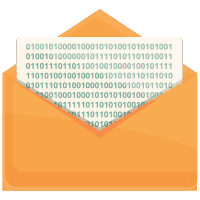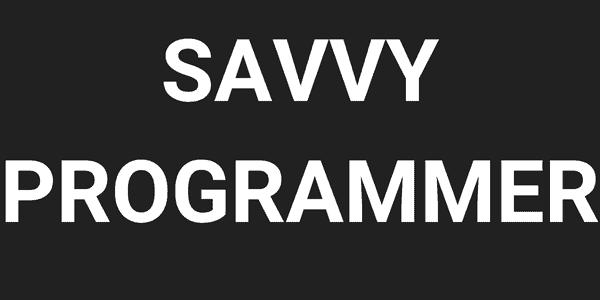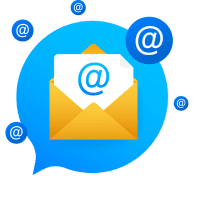Getting a job as a software developer used to be purely a matter of proving your technical know-how. Whether qualifications, experience, or a combination of both, if you could prove that you could do the technical side of the job, then nothing else mattered.
Not even a lack of social skills could cause a software developer not to get the job.
But the job landscape has changed a lot over the last few years. Since the 1980s, the number of jobs that require both analytical or technical knowledge and social skills has increased by 94%.
We need to do more than prove our programming skills to get a job these days. So, here are some non-technical questions that you could expect in an interview (and how you should answer them).
1. What Do We Do? ?
This interview question may come in various forms and not necessarily always with the exact phrasing, but the meaning and purpose behind the question will be the same. The question of “what do we do” is used to ascertain a few things, including:
Gauging How Important The Interview Is To You
If you value the opportunity, the chances are that you will do proper research before you go into the interview. If you spend time on the company’s website and social media, you should have a relatively good understanding of what they do and possibly what your potential job will entail.
Determining Your Engagement In The Industry
A candidate engaged in the industry will know all the major players. If you are being interviewed at one of the goliaths of the industry, the chances are that you won’t have to do much research if you are engaged and involved in the industry; you will already have learned a lot about the company just by being active in the field.
How To Answer This Question
The answer to this question involves research. It’s always recommended to research the company that’s about to interview you, whether you already know them or not. Proving that you have some knowledge beyond the norm is always an advantage if you don’t appear too arrogant about it. While you’re researching, try to focus on insight rather than knowledge.
See past the words that you read on the website and social media platforms. Connect the dots and see what the business is genuinely about. For example, Facebook is a social media platform. But its users are not its customers since users don’t pay a cent. Facebook’s business isn’t social media; it’s advertising because that’s where its revenue comes from.
Try to see the company this way and understand where your software development skills would be needed in this machine. When you enter into an interview with this level of insight, and you can offer this insight to your interviewer in answer to the “what do we do” question, you will find that you are already miles ahead of the other applicants who did not do that.
2. Explain Random Concept To Me Like I’m 8 ?
This question might seem technical, but it isn’t really. If the interviewer asks you to explain a concept like you’re talking to an 8-year-old, it’s not really your technical or software development knowledge that’s being tested. The interviewer is trying to determine two other things.
The first is your understanding of the concept rather than your knowledge of it. Albert Einstein said, “If you can’t explain it simply, you don’t understand it well enough.” If you truly understand your topic, not just know it but genuinely get it, you should be able to explain it in a simple way as if you are talking to a child.
Secondly, this question will test your communication skills. Candidates will often try to impress interviewers with a vast vocabulary of words that have never seen the light outside of the Oxford dictionary. Forcing you to explain something in everyday English is an excellent method for the interviewer to know if you can communicate as normal humans do.
How To Answer This Question
It’s always good to be prepared, but that does not necessarily help in this case. Interviewers will often try to tweak this question a bit by not asking you about any topic related to software development, but rather about a general knowledge topic that you should know something about, like the world wide web, for example. Preparation is pointless since the subject could be anything.
Don’t be afraid to think carefully about it before answering this one. You have plenty of time allocated to you in the interview; that time is yours, so use it to think about the correct way to answer this question.
While you’re pondering, think about comparisons. Since you are explaining something to an 8-year-old, comparisons, illustrations, and examples are gold. Think about ways to explain the concept in terms that a child would understand. Teaching with a story is also an excellent way to answer this question.
The way you answer this one could also be the perfect opportunity to show some creative, out-of-the-box thinking. Use it well!
3. What’s Your Favorite App / Web Platform? ?
Jon Hyman, CEO of Appboy, says that he loves to ask this question or some variation of it. According to his experience, it’s surprising to him how often people cannot answer the question, given how much time we tend to spend on our phones. But when he does get an answer, it provides an excellent opportunity to get a look into the candidate’s passion for the industry in general.
Your favorite app will tell an interviewer much about the things you spend your time on and your current life situation. But this is not where the benefits of this question end since it opens up the opportunity for further discussion about how well you think the app was developed and how it could be improved, showing insight into the “why” behind software development.
How To Answer This Question
Don’t confuse your favorite app with your most-used app. Your favorite app could be something that you spend most of your time on, but that’s not necessarily true. You may spend 4 hours a day on Outlook, but that does not mean you love Outlook; it’s simply what gets the job done. Similarly, spending 6 hours a day on Netflix doesn’t make Netflix your favorite app; you just love a show.
To determine which app you think of with fondness, not fondness of the next bit of entertainment, but about the app itself. This may be pretty difficult, but apps often stand out because of their friendly user interface, classy design, or perhaps the app’s developers stand for something that you believe in.
Think of an app that you would install even if you didn’t use it every day, simply because your phone would feel empty without it. Then think about the reasons behind that sentiment. It’s interesting how much you might actually learn about yourself from this exercise, so don’t wait for the question to come up in an interview; do it now. It’s worth it.
4. What Are You Reading? ?
This question is similar to question three about your favorite app. An interviewer can learn much about you from how you answer it. As Haruki Murakami said, “If you only read the books that everyone else is reading, you can only think what everyone else is thinking.” The books you read indicate how much you value learning and how you view others’ opinions.
Your answer to the question could also lead to some fascinating follow-up questions, such as what you think about the book or some particular part of it. Questions about whether you agree with one specific opinion that the author raises or how you would counter that opinion.
All of your answers to the main question and follow-up questions could give the interviewer a wealth of knowledge about the type of person you are. Unfortunately, there could also be some prejudices attached to this, so it is a question that you should answer with careful thought.
How To Answer This Question
The crucial first step is to answer it honestly. Don’t try to give an answer that you think the interviewer would want to hear. If you don’t really read, specify this. If you’ve been battling through Lord of the Rings for the last six years, tell them that. If you’re halfway through three novels and five textbooks about the secret life of gnomes, that should also be shared (perhaps within limits).
Regardless of your stance on reading, this is crucial information to share honestly since any follow-up questions could catch you out if you’re not honest. This would reflect even worse on you than giving an answer that you don’t think the interviewer would like.
Unfortunately, it is a fact that many people, especially employers, tend to be judgemental towards people who don’t read. If you are not a reader but get your personal growth in some other way, mention this too. Due to time constraints, many successful people opt for an Audible subscription or podcasts instead of reading since they can listen to audiobooks while commuting.
This is arguably just as effective as reading, so mention this and discuss what you’re listening to. Even if the interviewer is unfamiliar with audiobooks or podcasts, they should pretty soon get the idea that it’s still effective for personal growth.
But what if you don’t do that, either? If you’re not currently doing anything to improve yourself mentally and challenge your ways of thinking, then this might be the right time for you to start doing that.
5. Describe A Time You Had To Break Down A Complex Problem ?
Software developers must be problem solvers by nature. The fact that you know how to code does not make you a problem-solver, and there’s a reason why many IDEs refer to coding projects as “solutions.” You are literally coding a solution to a problem (or series of problems).
Technical interviewers can easily (and would typically) ask for sample code, or they will get you to send them code to accomplish a particular task. Unfortunately, the code can easily be copied and pasted from Google’s search results.
This is not so easy to do with problem-solving. Suppose the interviewer can determine your ability to break down complex problems and challenges into smaller parts (decomposition) and remove the factors that are irrelevant (abstraction). In that case, this will show them a much better picture of your capabilities as a software developer.
How To Answer This Question
Once again, a vital part of the answer is honesty. Then look for a time in your life when you faced a complicated situation that you had to break down into smaller challenges and overcame in the end. This situation may be related to your career or not. It really doesn’t matter. The question isn’t about your programming skills and coding prowess but your real-life problem-solving ability.
Explain the situation briefly, then go into more detail about how exactly you went about resolving the issue. The interviewer does not have to understand all of the background factors, so don’t worry too much about explaining the backstory.
Side-Note About Question Five
This question is often disguised as another question entirely. Sometimes the interviewer will create a fictitious problem and ask you to explain how you would resolve it. In this case, remember that the interviewer is not asking for the end result. They are looking for your thinking process, the decomposition, and abstraction of the problem, so that you may eventually find a solution.
6. Tell Me How You Handled A Disagreement Over Requirements ?
Software developers are no longer the stereotypical isolated people sitting in the dark basement. The job of a software developer has become more and more of a social job over the last few decades and will continue to do so. The most significant part of that social aspect is dealing with either a boss or a client who may have complicated requirements or expectations.
Asking you about a particular situation where you handled a disagreement over requirements will help your potential future employer to see if you have the social skills and tactfulness to deal with complicated people in the workplace.
Jim Rohn is often credited for saying, “There are only about nine really nasty people in the world. They just get around a lot.” Whether Mr. Rohn actually said this or not, it conveys the (relatively accurate, if perhaps exaggerated) message that most people are friendly. Still, we all have to deal with a nasty one every once in a while.
How To Answer This Question
You should take care to answer this question tactfully. Don’t lie, ever. Honesty is crucial. But the way that you tell the story matters. For example, if you happened to “lose your cool” with a difficult customer about their requirements, state this and explain what you learned from that experience and how it changed who you are and how you now deal with conflict situations.
Remember that your client or boss will have a particular picture in their mind about how the end result should look and function. This is not necessarily always possible, and it’s part of your job to convey the message to them in a diplomatic way. Whatever you say in answer to this question should tell the interviewer precisely that but through a story.










